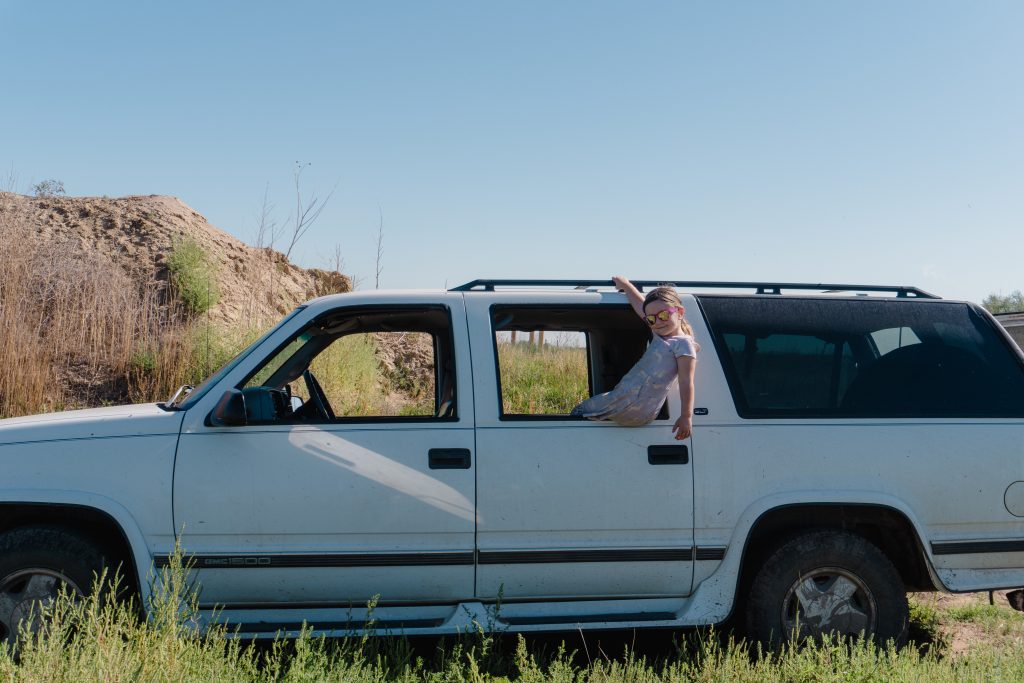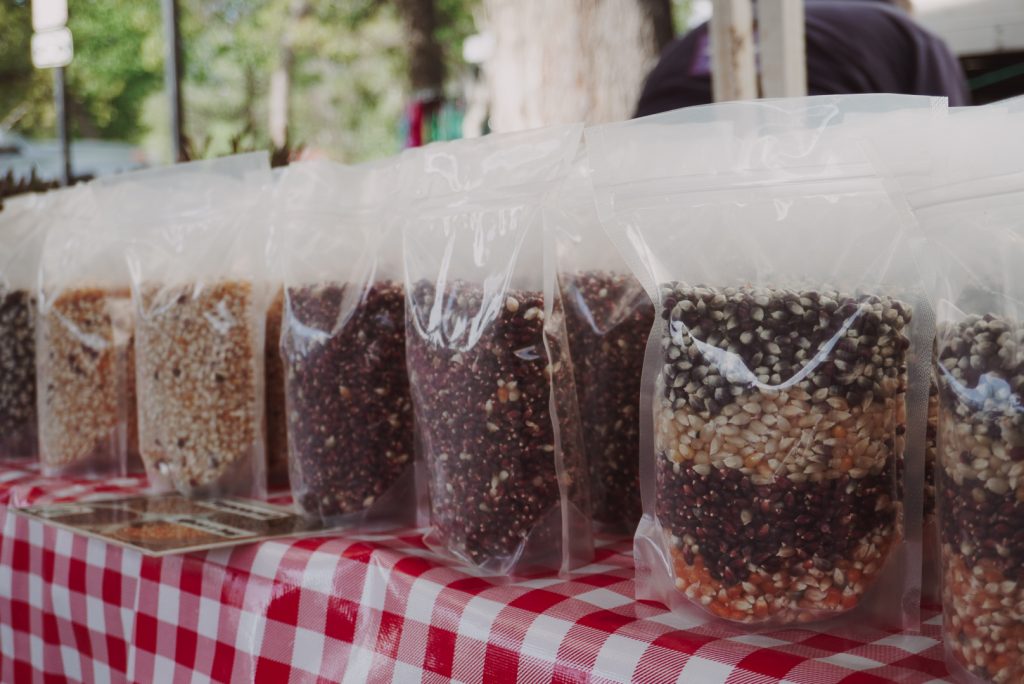At Monroe Organic Farms, young farmers build on generations of wisdom
Growing up, Kyle Monroe and Samantha (Sam) Caplan spent much of their summers at the Boulder Farmers Market. Their parents both had booths: Kyle’s mom and dad, Jacquie and Jerry, jointly running Monroe Organic Farms, while Sam’s dad, Howard Caplan – affectionately known by market regulars as “the muffin man” – sold baked goods as Brillig Works Cafe. Perhaps the cutest love story ever told, Kyle and Sam went from two kids bartering vegetables and baked goods on behalf of their parents to falling in love, starting their own family, and being the latest of four generations to run Monroe Organic Farms.
The first three generations of Monroe Organic Farms
The family farm was founded by Lester Monroe (Kyle’s great grandfather) in 1936. Despite there being no term for it at the time, he grew all of his vegetables organically. When his son, Jerry Sr., went off to World War II, he saw the very chemicals used by American farmers weaponized as chemical warfare. Returning to the farm after deployment, he vowed to never use pesticides – cementing the Monroe family’s commitment to organic farming for decades to come.
During Jerry Sr.’s tenure the farm was a U-Pick operation, meaning most of their sales went to customers who would visit the farm and pick their own produce, with a few grocery store sales here and there. When Kyle’s parents took over the business, they pivoted away from the U-Pick model and began collaborating with other growers to set up farmers markets across the state, including Boulder County Farmers Markets in 1987. A few years later, Monroe Organic Farms became one of the first farms in Colorado to offer a CSA (Community Supported Agriculture) to their customers, which they continue to offer today.
Passing the torch, and 200 acres of nutrient-rich soil
Kyle and Sam took over the farm in 2018. Looking back, Kyle always knew it was the path he wanted to take with his life, even when his family pleaded with him to at least attend college first. For Sam, she caught the farming bug as she traveled across the world through WWOOF (World Wide Opportunities on Organic Farms) before returning to Colorado and asking Kyle if she could work with him. Today, Kyle and Sam oversee just under 200 acres. About 60 acres are being used to grow vegetables, while the rest is used for growing alfalfa and rearing animals, such as cattle, sheep, pigs, and a (somewhat useless, in their words) llama.
Customers at the market may notice that in addition to Monroe’s long list of staple produce, they also grow certain crops many other farms don’t – like strawberries. Their ability to produce such a wide variety of produce can be credited to their unique environment. Located about a half hour from Greeley, they have a slightly warmer climate which means their plants can be harvested earlier in the season than farms located near Boulder County. Most importantly, however, is their soil – formed thousands of years ago from a seabed, it’s retained a sandy texture and is especially high in minerals. While modern soil science probably wasn’t something Kyle’s great grandfather could have predicted, it has become increasingly important to Kyle and Sam, and they are working with other farmers and agricultural researchers to gather data on the soil’s nutrients and how it impacts plant tissues.

Building the future thanks to knowledge of the past
What you’ll hear from any young or beginning farmer is that mentorship is invaluable. You’ll also hear from farmers of all ages that you have to be crazy to make it your livelihood. The pair acknowledge that their position is much different from many young farmers, who don’t have the same access to land, equipment, and knowledge that they do thanks to the Monroe family’s long history. “When I see new farmers, I have so much respect for what they are doing,“ said Kyle. They know how many of their friends struggle with making a living: often applying for grants in order to afford necessary expenses, working two jobs in order to pay the bills, and at risk of losing it all when a hail storm rolls through.
“What really makes us different from so many of the other young farmers is that we have the incredible gift of standing on the shoulders of multiple generations,” Sam added.
Still, that doesn’t mean the work doesn’t wear on them. On the day of our visit, they had more than 2,000 tomatoes to harvest, and that’s with only nine employees supporting them during the peak of harvest season. Most of the time, they do it with six. “One time we did the calculations,” said Sam, “and it turned out to be about 10 acres per person.” With such a small team, there isn’t such a thing as a real break until the end of harvest season. As Kyle noted, “You might want a day off, but the plants still need water.”
As Kyle and Sam trudge onward, they are figuring out what they ultimately want the farm to look like for themselves and their daughter – the fifth generation of the Monroe family. But while there are hard days on the farm, they both agree that trading it all away for a desk job isn’t an option.

You can find Monroe Organic Farms at the Boulder Farmers Market every Saturday. When you stop by their booth, be sure to try their garlic, which has been growing from the same seed for over fifty years, or grab a bag of popcorn to pop on the stove.
